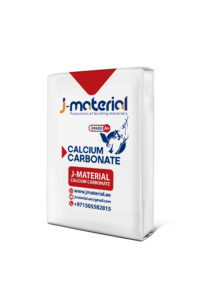Calcium carbonate, a naturally occurring mineral, plays a pivotal role in the construction industry. This versatile compound, known for its white, powdery appearance, is derived from limestone, chalk, and marble. Its widespread availability and beneficial properties make it a staple material in various construction applications. In this blog post, we’ll explore the numerous uses of calcium carbonate in construction, highlighting its significance and benefits.

What is Calcium Carbonate?
Calcium carbonate (CaCO₃) is a chemical compound made up of calcium, carbon, and oxygen. It’s one of the most abundant materials on Earth, found in sedimentary rocks like limestone and chalk, as well as in metamorphic marble. This compound has been used for centuries in various industries due to its non-toxic, environmentally friendly nature and its effectiveness in a wide range of applications.
Key Uses of Calcium Carbonate in Construction
- Cement and Concrete ProductionCalcium carbonate is a crucial component in cement and concrete, two of the most fundamental materials in construction. During the production of cement, limestone (a form of calcium carbonate) is heated to form lime (calcium oxide), which is then combined with other materials to create cement. This cement is mixed with aggregates and water to produce concrete, which is used in constructing buildings, bridges, roads, and other infrastructure.
- Building MaterialsCalcium carbonate is used in the production of various building materials, such as plaster, mortar, and stucco. It enhances the durability and strength of these materials, making them more resistant to environmental elements like moisture and temperature fluctuations. Additionally, its fine particle size contributes to a smoother finish, improving the aesthetic appeal of the final product.
- Flooring and Tile AdhesivesThe construction industry also uses calcium carbonate as a filler in the production of adhesives for flooring and tiles. It helps improve the adhesive’s consistency, workability, and binding properties, ensuring that tiles and flooring materials adhere securely to surfaces. Its high purity and fine texture make it ideal for achieving a uniform, flawless finish in these applications.
- Paints and CoatingsIn the production of paints and coatings, calcium carbonate serves as an extender, reducing the amount of expensive pigments needed and enhancing the paint’s overall quality. It improves the paint’s opacity, brightness, and resistance to wear, making it ideal for both interior and exterior applications. Additionally, its alkaline properties help neutralize acidic conditions, contributing to the longevity of the paint.
- Soil StabilizationIn construction projects involving the stabilization of soil, especially in road construction, calcium carbonate is often used. It acts as a binding agent, helping to solidify and stabilize loose or sandy soils, thereby improving the load-bearing capacity of the ground. This is particularly important for creating stable foundations for roads, buildings, and other structures.
- Environmental RemediationCalcium carbonate also plays a role in environmental remediation within construction sites. It is used to neutralize acidic soils and water, thereby preventing environmental damage caused by construction activities. Its non-toxic nature makes it an environmentally friendly option for managing pH levels in various applications.
Benefits of Using Calcium Carbonate in Construction
- Cost-Effective: As a naturally abundant material, calcium carbonate is relatively inexpensive, helping to reduce the overall cost of construction projects.
- Versatile: Its wide range of uses, from cement production to soil stabilization, makes calcium carbonate a versatile material in the construction industry.
- Durability: When used in construction materials, calcium carbonate enhances durability, making structures more resilient to wear and environmental factors.
- Sustainability: Calcium carbonate is a sustainable material, as it is naturally occurring and has minimal environmental impact during extraction and processing.
Calcium carbonate is an indispensable material in the construction industry, offering a blend of versatility, cost-effectiveness, and durability. Whether it’s in the production of cement and concrete, enhancing the performance of paints and adhesives, or stabilizing soils, this compound plays a critical role in building the infrastructure that supports modern life. As the construction industry continues to evolve, the importance of calcium carbonate in creating sustainable and durable structures will only grow.
By understanding the uses and benefits of calcium carbonate, construction professionals can better leverage this material to improve the quality and longevity of their projects, contributing to the development of safer and more resilient structures.

